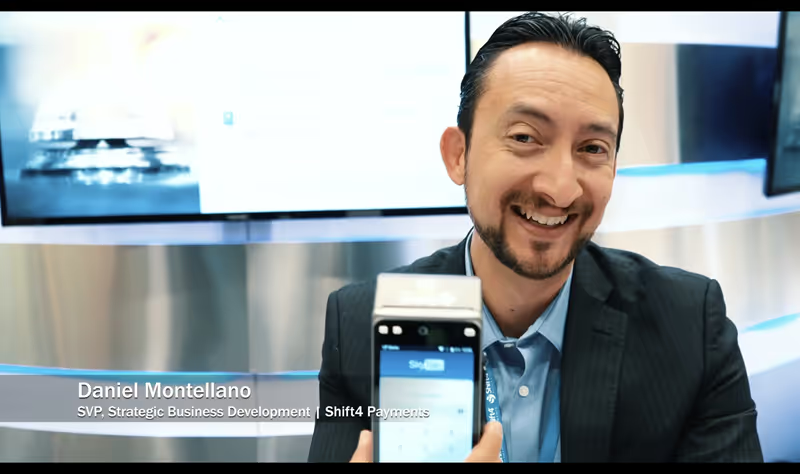Since launching this column almost six years ago, I have written 129 articles about different aspects of hotel technology, with only a handful of topics appearing more than once. It has been a great educational experience for me to have the opportunity to learn from so many of the experts who really understand how technology is changing and who have visions for the future.
But all good things must come to an end, and this will be my final column. These blogs often require 20 to 30 hours of research each on a two-week cycle, and I can no longer sustain that time commitment. I will continue to fulfill other industry roles as in recent years, including serving on corporate and advisory boards for various vendor companies, mentoring startups, helping investors evaluate opportunities, contributing to different association efforts, speaking at industry events, and publishing occasional articles through Hospitality Upgrade, Hotel Online, or elsewhere.
For my final article, I will provide a few reflections on the 37 years I have worked in the hospitality tech space. I started in 1988 with The Graycon Group (predecessor to TravelClick), continued with my own consulting group (Stratus Management Group), advising hotel brands at the CIO/CMO/CEO level. I then co-founded HTNG (literally in my back yard in 2002) and had the privilege of running it until 2015. Since then, I have focused on ongoing board and advisory roles, mentorship, volunteer efforts, writing, and speaking at industry conferences. A lot has changed in those 37 years, some but not all for the better.
The Move to Asset-Light. Perhaps the biggest change in the hospitality tech landscape was driven by financial markets, notably the credit crunch of 1990-91 that forced major hotel brands to move to asset-light strategies. This had downstream implications that have complicated the technology landscape ever since: it transformed the major brands from hotel owners and operators to primarily branding and marketing organizations. They continued to deploy core technologies related to marketing and franchising, which by my estimate account for about 10% to 15% of total hotel technology spend today. But with a few exceptions, they pushed decisions (and funding) for the other 85% or 90% of tech spending to hotel owners and operators.
The result was that, except for a few core technologies like reservations, loyalty, property management systems (for some), and eventually customer relationship management, the purchase decision-making process became far more complex. Ownership and management companies had to play more active roles, but brand cooperation was still required for the interfaces with core systems that often were required. Not only were more decision makers (or perhaps more cynically, veto holders) involved with each purchase, but there were fewer and fewer large sales targets over time, as unique combinations of these decision makers increasingly controlled only one or a handful of properties. That is not an environment that is friendly to vendors who need to sell cost-effectively. It has led to a highly fragmented market, unnecessary cost pressure on vendors, higher prices, and often poor interoperability and support.
The Shift to Third Party Tech. Most of the major brands also realized (some much sooner that others) that their core strengths were branding, marketing, distribution, and franchising – not technology. Those with proprietary, in-house technologies first started moving to third-party providers in the 1980s. That shift has now been ongoing for 40 years, but it is only within the last few years that it has neared completion. Choice is the only remaining major hotel group that still uses core systems that were developed in-house, and that has no announced plans to change. Most of the others are still somewhere in the transition process but have clear direction and plans.
Vendor Consolidation. While the hotel tech landscape remains extremely fragmented, there has been consolidation in a few key segments. Microsoft (which by my calculation is the largest vendor selling tech to hotels) has almost total control of the computing environment deployed at hotels and much of that at corporate. Oracle largely owns the higher-end of the property management (PMS) and point-of-sale market, although it still serves less than 10% of global hotels and maybe 15% to 20% of rooms. Amadeus and Sabre have expanded their product portfolios organically and through acquisitions, and there has been some movement by various private equity groups to bring together multiple systems under a single platform. There has been some consolidation in the managed-service space for infrastructure and guest room technologies, although the largest companies are still small by the standards of other industries.
Yet despite this consolidation, hotel tech remains a highly fragmented market. The largest of the companies mentioned above still has a share of total hotel tech spending that is less than 5%, and only a handful even reach 1%. The buyer landscape is even worse: even the largest hotel companies (brands, owners, and operators) individually control only 1% to 2% of total hotel tech spending.
Vendor consolidation has had its pluses and minuses. The successful combinations have produced stronger balance sheets and reduced long-term risk for the vendors and their customers. Support, interfaces, and version upgrades all work better when coordinated under a single provider. Large companies tend to spend more time and effort developing and executing forward-thinking product roadmaps. But at the same time, they become less dependent on any single customer, less responsive to client requirements that do not fully align with their own vision and strategy, and usually less innovative.
The Underlying Tech Trends. It is hard to understate the impact or potential impact of underlying technological trends on our industry, but also easy to overstate the speed at which hotels have adapted. When I joined the industry in the late 1980s, mainframes and large minicomputers were the norm. On-premise hardware at properties was extensive (and expensive), and green screens were the way that hotel staff interacted with them. Reservations were mostly made by telephone or mail, with only a small percentage transacted digitally (almost exclusively through Global Distribution Systems). Except for the GDSs, all these technologies have nearly vanished from the broader tech landscape. But they are still very common in many hotels.
Major technologies that have emerged in the last 30 years include the Internet and the Worldwide Web, cloud computing (with the side benefit of far more manageable system interoperability), and mobile devices. In each case, hotels eventually started to incorporate these and other innovations, but only with a lag of perhaps (on average) a decade. Artificial Intelligence (AI) is clearly the dominant tech trend today, and is getting some interest in hotels, but has not yet really impacted many core business processes. I expect AI to be adopted by hotels faster than the web, cloud, or mobile, but it will still take years to reach any level of maturity.
The next trend, which is obvious in the broader tech space but still almost unheard of in hotels and even within much of the broader travel marketplace, is self-sovereign identity (SSI). This approach is now largely embedded within global web standards, under the same governance as other open-source efforts like HTML and Linux. It is also a core component of the R&D efforts and architectural roadmaps for more and more of the world’s largest tech companies.
But as much as SSI promises clean solutions to personalization, compliance with data privacy regulations, the connected trip, and cyber risk and insurance costs, the concepts are much harder to grasp than some AI tools like ChatGPT, Bard, or Copilot. You can play with one of these for 15 minutes and get a good sense of what they can do; the same is not true with SSI. As a result, I expect it will be another ten years (or longer) before hotels start to adopt SSI and recognize the benefits, even if some of the large vendors take the initiative and start trying to bring them along sooner.
What’s Next for Me? Today, I am focused as a volunteer evangelist on the convergence of AI and SSI, and how they will change travel. The combination can potentially provide unique solutions that solve major industry priorities in a powerful and elegant way, putting the traveler at the center of their trip rather than a myriad of haphazardly connected suppliers and intermediaries. I have no idea where the first major breakthroughs for this technology will appear (there are some small ones already), but I hope to be in the middle of it when they do.
If you want to stay connected with me, please follow, connect, or message me on LinkedIn, where I will post occasional updates, including interesting new tech products that I think might be of interest to the community. I remain eager to hear about those new products (and product ideas!), especially ones that leverage emerging technologies. So if you have something you want to run past me, please reach out any time.




























.avif)



.avif)
























.avif)


.avif)
















































